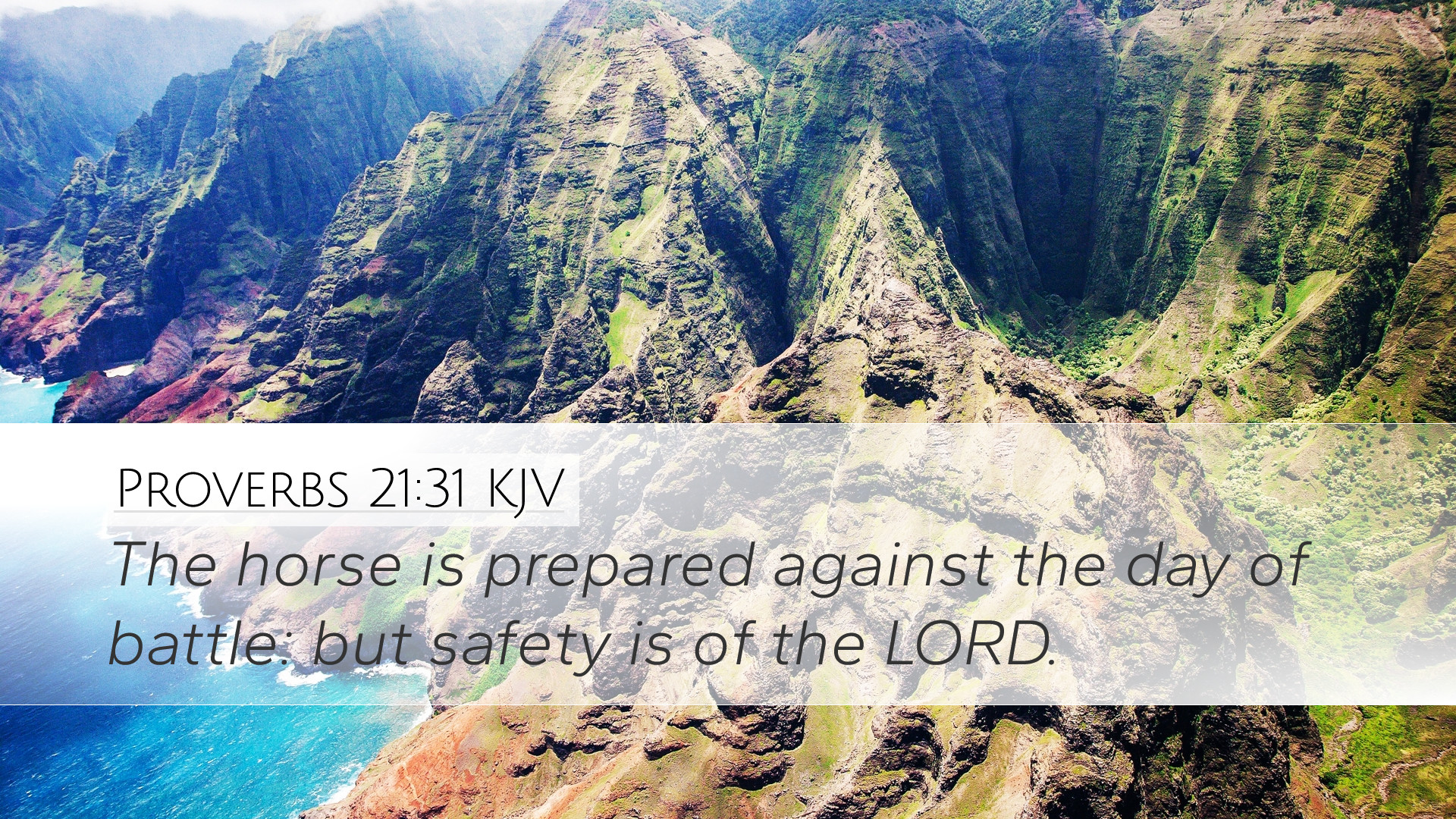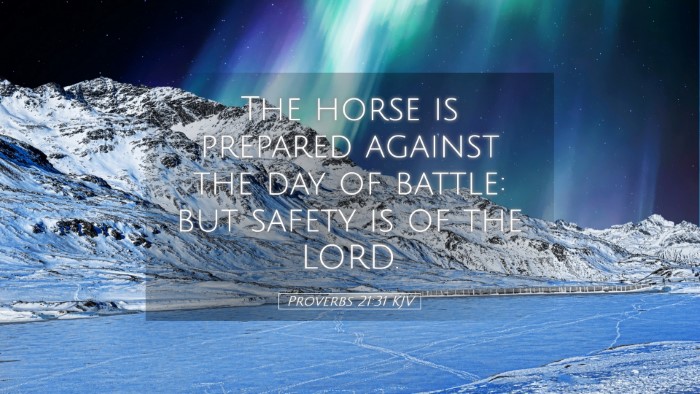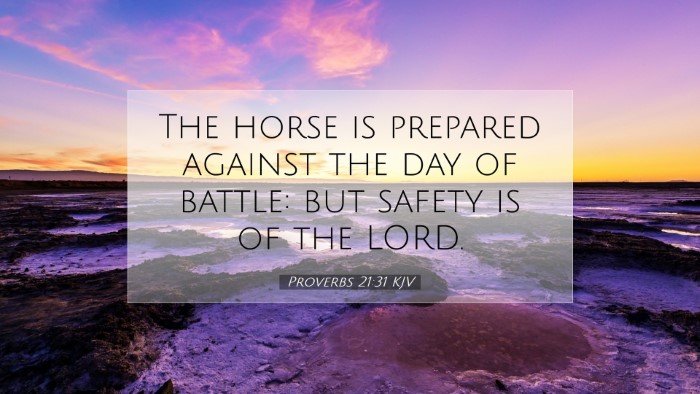Commentary on Proverbs 21:31
Verse: "The horse is prepared against the day of battle: but safety is of the LORD."
Introduction
This verse encapsulates a profound spiritual truth, offering insight into the relationship between human effort and divine providence. The imagery of a horse prepared for battle signifies the importance of preparation and the role of human agency, while the assertion that "safety is of the LORD" shifts the focus to God's ultimate sovereignty and control over outcomes. This dual theme resonates throughout the Scriptures, illustrating the balance between faith and works.
Contextual Analysis
The context of Proverbs 21 centers on the wisdom of God juxtaposed with human behavior and choices. The preceding verses lay a foundation for understanding the importance of righteousness and justice. In this light, verse 31 serves as a concluding admonition regarding the futility of trusting solely in one's own abilities in the face of life’s uncertainties.
Insights from Matthew Henry
Matthew Henry emphasizes the necessity of preparation in various aspects of life. He notes that while a horse—the emblem of strength in warfare—must be prepared, it is ultimately recognition of God’s providence that brings true safety. He urges that all human endeavors should be undertaken with a sense of dependency on the divine will, acknowledging that without God, preparation alone is insufficient.
Insights from Albert Barnes
Albert Barnes identifies the horse as a metaphor for worldly reliance and human strength. He explains that preparing the horse is akin to preparing oneself for the challenges and battles life presents. However, he insists that in addition to preparation, one must maintain a posture of faith, relying on the Lord for victory and protection. Barnes highlights that this principle applies not just in warfare but in everyday struggles, underscoring the importance of spiritual readiness.
Insights from Adam Clarke
Adam Clarke delves into the significance of the metaphorical 'horse' as an instrument of military power and might. He reflects on the historical context wherein horses were essential for battle success, indicating that human efforts are commendable, yet ultimately, it is God who determines the outcome. Clarke posits that the verse underscores a fundamental biblical teaching: that while we should diligently prepare and act, we must also submit our plans to God, who governs all events.
Theological Implications
The juxtaposition of human preparation and divine sovereignty raises important theological questions regarding free will and divine intervention. The verse suggests that while humans are responsible for their own actions, these actions must be aligned with a humble acknowledgment of God’s authority. It compels pastors and theologians to consider how they communicate the balance between faith and works in their preaching and teaching.
Practical Applications
-
Preparation:
In ministerial settings, preparation for spiritual battles—including prayer, study, and strategizing for outreach—should be prioritized while remaining aware that ultimate success relies upon the Lord's direction.
-
Dependency on God:
Pastoral leaders should model and teach their congregations the importance of actively trusting in God to provide safety and outcomes, rather than relying solely on human capabilities.
-
Encouragement in Trials:
This verse can serve as a source of comfort for believers undergoing trials, reminding them that while they can prepare and act, their ultimate safety and success rest in God’s hands.
Conclusion
Proverbs 21:31 serves as a powerful reminder of the intricate relationship between human effort and divine sovereignty. Through the insights gathered from esteemed commentators such as Matthew Henry, Albert Barnes, and Adam Clarke, we gain a comprehensive understanding of this verse’s implications. As we navigate the complexities of life and ministry, may we strive to act diligently, prepared for the challenges ahead, while concurrently placing our trust in the Lord, the ultimate source of our safety and victory.


